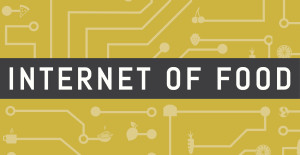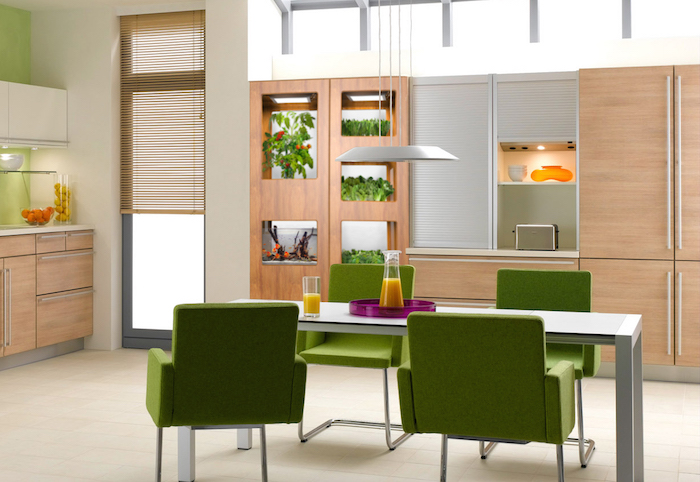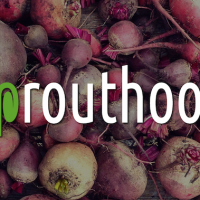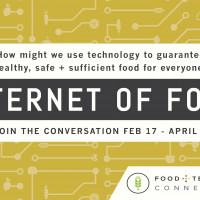Guest post by Gabe Blanchet, co-founder & CEO of Grove Labs. The views expressed are solely those of the author, and do not reflect the views of Food+Tech Connect.
Access to healthy, safe and sufficient food is critical to our global population as we continue to grow, urbanize and use more resources. Solutions that will successfully counter the negative effects of both poor nutrition and diet, and global food production (along with its multitude of knock-on effects including climate change, soil eutrophication, ecosystem collapse, etc.) are multi-faceted. This is not a simple challenge, and there is not a simple, one-size-fits-all solution.
In the short term, we must focus on two things. First, efficiency — we must use existing resources more thoughtfully. This means wasting less food and maximizing output of farming practices without sacrificing long term health and viability of the land and ecosystems that sustains us. Second, culture — we must inspire people around the world to use more discretion when choosing what they eat. Food producers adapt to and respond to consumer choices. By encouraging a more plant-based diet in our global culture, we are championing a less wasteful and destructive way of living on planet Earth. After all, it takes far more land and resources to grow meat than to grow vegetables.
In the longer term, powerful technology, innovative business models and great design will enable access to healthy, safe, sufficient and sustainably-grown food. I’m pleased with current efforts to hone and streamline industrial agriculture using big data. However, I don’t believe our current paradigm of prescriptive, chemical based industrial agriculture is the best way to combat our global food and agriculture problem.
Industrial agriculture continues to use a lot of land and is quite susceptible to pests and pathogens, which are combated using chemical pesticides, insecticides and herbicides. Maintaining focus on industrial farming practices also relegates the role of food production to a few specialized commercial farms and farmers. While I’m inspired by the promise of commercial-scale urban and peri-urban farming (including radically expensive ideas like vertical farming), I am convinced that the most positive impact I can have is by inspiring individuals to grow their own food. By distributing the means of food production, we can guarantee access to healthy, safe, and sufficient food for everybody while laying the cultural and scientific foundation for a long and prosperous food future.
We can harness powerful new technologies, like efficient LED lights that mimic the sun and sensors that make gardening and growing food delightful and easy. We can design products and services that inspire city-dwellers to grow their own food using controlled environment techniques (like greenhouses and entirely artificially-lit indoor gardens). We can distribute food production while also inspiring people to be involved with what they eat, and to care about where it comes from and how it was grown.
What we need is a revolution. A growing revolution, of sorts. By making food production personal, we can positively impact the health of people, families, communities and our planet. It’s a win-win-win-win, and that’s why we started Grove Labs.
 Internet of Food is editorial series exploring how we might use technology, new business models and design to guarantee healthy, safe and sufficient food for everyone?” Join the conversation between February 17 and April 2. Share your ideas in the comments, on Twitter using#internetoffood, Facebook or LinkedIn.
Internet of Food is editorial series exploring how we might use technology, new business models and design to guarantee healthy, safe and sufficient food for everyone?” Join the conversation between February 17 and April 2. Share your ideas in the comments, on Twitter using#internetoffood, Facebook or LinkedIn.
________________
 Gabe Blanchet is Co-founder & CEO of Grove Labs. Gabe recently earned an SB in Mechanical Engineering from MIT, where he captained the men’s ice hockey team, played on the men’s lacrosse team, and worked on research projects at both the MIT Media Lab and the Astronautics department.
Gabe Blanchet is Co-founder & CEO of Grove Labs. Gabe recently earned an SB in Mechanical Engineering from MIT, where he captained the men’s ice hockey team, played on the men’s lacrosse team, and worked on research projects at both the MIT Media Lab and the Astronautics department.
Before co-founding Grove Labs, Gabe took a yearlong hiatus from MIT to join a startup called GrabCAD, an online community of mechanical engineers. During his time there, GrabCAD raised over $13M in VC funding and went from 4 employees to over 30.
Gabe is combining his entrepreneurial spirit and engineering background to help provide access to healthy, local (well, hyper-local!), sustainably-grown food to everybody on the planet.






